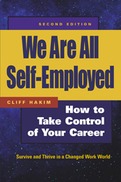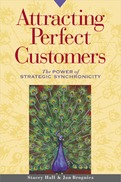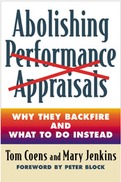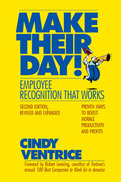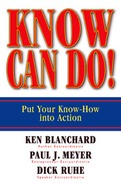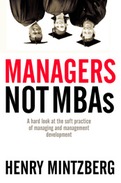- A revised and expanded edition of the bestseller that predicted the end of lifelong job security and pioneered the concept of a "self-employed attitude"
- Filled with diverse and relevant "self-leadership" stories that show how people have expressed their self-employed attitude and why
- Offers a more satisfying, effective, and profitable sales and marketing model
- Provides tips for transforming any business into an irresistible magnet for attracting and retaining perfect customers, as well as employees, vendors, and other stakeholders
- Offers simple, fun, and easy-to-follow exercises that anyone in any organization can immediately and effectively use to attract better customers, enjoy their work more, and increase profitability
• Shows why performance appraisal should be abolished and provides specific guidance on what to do instead
• Provides multiple detailed case studies of organizations that have successfully abolished performance appraisal
• Foreword by Peter Block
Performance appraisals are used in the overwhelming majority of workplaces. Yet, most organizations that use appraisal-and a similar percentage of givers and receivers of appraisal-are dissatisfied with the process. Many are beginning to deeply question whether appraisal is necessary and consistent with the work culture espoused by progressive organizations. Abolishing Performance Appraisals provides an insightful, well documented look at the flaws of appraisal-including its destructive, unintended effects-and offers practical guidance to organizations that want to move on to more progressive approaches to coaching, feedback, development, and compensation.
While many books prescribe cures for appraisal, this is the first to focus exclusively on eliminating appraisal altogether and creating alternative, non-appraisal approaches based upon progressive and healthier assumptions about people. The authors expose and dispel the widely accepted myths and false assumptions that underlie common management strategies surrounding the five key functions of appraisal-coaching, feedback, development, compensation, and legal documentation. They then offer step-by-step practical guidance on implementing alternative non-appraisal strategies that deliver the objectives of each function. And they suggest ways to give supervisors and managers the freedom to choose for themselves the most effective ways of working with people.
Filled with real-life examples, resources, tools, and detailed practical advice, Abolishing Performance Appraisals is an entirely fresh and radically different view of performance appraisal and its functions that will help people start over and discover new and more effective approaches.
2009
2007
• From bestselling author Ken Blanchard, whose books have sold more than 18 million copies worldwide
• Offers a foolproof method for putting your knowledge into practice
• Written in the entertaining fable format Blanchard made famous
2005
“The MBA trains the wrong people in the wrong ways with the wrong consequences,” Mintzberg writes. “Using the classroom to help develop people already practicing management is a fine idea, but pretending to create managers out of people who have never managed is a sham.”
Leaders cannot be created in a classroom. They arise in context. But people who already practice management can significantly improve their effectiveness given the opportunity to learn thoughtfully from their own experience. Mintzberg calls for a more engaging approach to managing and a more reflective approach to management education. He also outlines how business schools can become true schools of management.
- Mintzberg, author of such classic bestsellers as The Rise and Fall of Strategic Planning and The Nature of Managerial Work, was named one of the Top 10 Management Thinkers in the World by the Financial Times
- The most extensive critique of management education and its effects on management practice ever published-showing how MBA programs train the wrong people in the wrong ways with the wrong consequences
- Offers proven alternatives for educating the right people in the right ways with the right consequences


